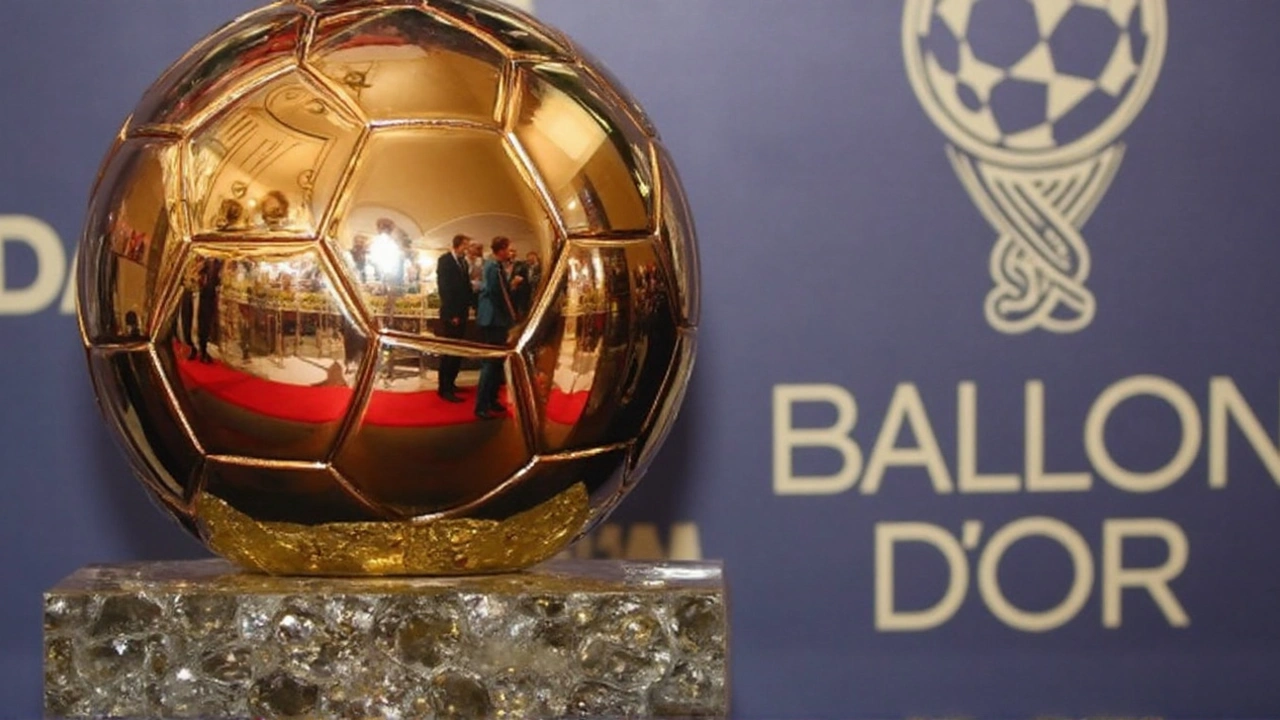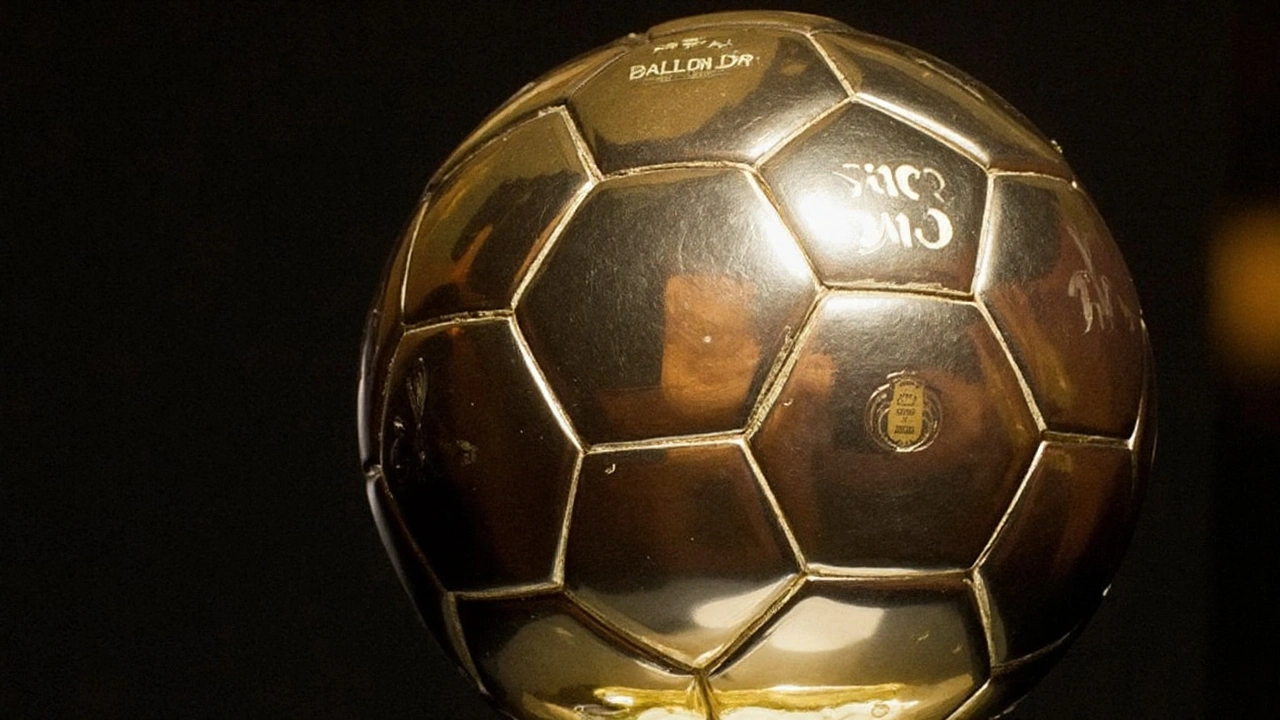Ballon d'Or 2025 Winner Leak Sparks Frenzy Hours Before Paris Gala

Leak claims ignite debate
As the Théâtre du Châtelet prepares to host the Ballon d'Or 2025 ceremony tonight, a wave of supposed insider documents has flooded social media. Screenshots purporting to reveal the full list of winners point to 18‑year‑old Lamine Yamal of Barcelona as the man to lift the coveted trophy. The image, shared by several fan accounts, looks official at first glance—gold‑lined borders, a logo that mimics the award’s branding, and a neatly typed table of nominees.
Yet a closer look tells a different story. Observant followers have flagged mismatched fonts, a typo in Yamal’s last name, and an impossible ranking for players who are still recovering from injuries. Media outlets with a track record of fact‑checking, such as Reuters and Sky Sports, have warned that no credible source has confirmed the leak. Their statements stress that the Ballon d'Or voting process remains sealed until the live announcement.
The timing of the leak adds another twist. Last year’s ceremony ended in controversy when a premature report suggested Vinícius Júnior would be snubbed, prompting Real Madrid to boycott the event. That memory still lingers, making clubs and players extra wary of any pre‑emptive leaks that could sway public opinion or affect sponsorship deals.

Scheduling clash leaves PSG nominees on the sidelines
Even if the leak is bogus, the night’s logistical challenges are very real. Nine former PSG stars who contributed to the club’s historic treble last season have been nominated for the award. The list includes Ousmane Dembélé, Desire Doué, Achraf Hakimi, Khvicha Kvaratskhelia, Nuno Mendes, João Neves, Fabián Ruiz and Vitinha, plus former PSG goalkeeper Gianluigi Donnarumma, now with Manchester City.
- Ousmane Dembélé (forward)
- Desire Doué (midfielder)
- Achraf Hakimi (defender)
- Khvicha Kvaratskhelia (winger)
- Nuno Mendes (left‑back)
- João Neves (midfielder)
- Fabián Ruiz (midfielder)
- Vitinha (midfielder)
- Gianluigi Donnarumma (goalkeeper, now at Manchester City)
All nine are slated to miss the gala because the Ligue 1 fixture between PSG and Olympique de Marseille was moved from Sunday to Monday night. The regional prefecture postponed the match citing severe weather threats, and the new kickoff is set for 8 p.m. at the Orange Vélodrome—directly overlapping with the Ballon d’Or ceremony’s start time.
Marseille’s official statement confirmed the shift, emphasizing security concerns and the need to protect fans and players. As a result, only the injured trio—Dembélé, Doué and Neves—who are already sidelined, are expected to attend the awards show. The rest will be on the bench in Marseille, watching the ceremony on a screen, if at all.
Both the leak saga and the match reschedule have stoked speculation among pundits. Some argue that the absence of PSG’s high‑profile nominees could tilt voting patterns in favor of players from clubs with full representation at the gala. Others point out that the Ballon d’Or voting panel, composed of journalists and national team captains, traditionally bases its decisions on season‑long performance, not ceremony attendance.
Fans worldwide are glued to live feeds, ready to react the instant the envelope is opened. Whether the leaked image turns out to be a hoax or a cracked window into the final tally, the night promises tension, drama, and a reminder that even in football’s most celebrated moments, uncertainty is part of the allure.
What the frenzy around a fabricated screenshot reveals is less about the Ballon d’Or itself and more about our collective hunger for certainty in a sport that refuses to be predictable. The moment the image appeared, social media morphed into a hive of speculation, each post echoing the other's doubts yet refusing to pause for verification. In an era where every pixel can be weaponised, the line between insider intel and clever hoax blurs beyond recognition. So, while fans buzz about a teenage prodigy lifting the golden globe, we should question why we allow an unverified meme to dictate our emotional agenda.
Enough of the drama-let's remember that the true celebration belongs to players who have earned their place over a grueling season, not to rumor mills that thrive on clickbait. The ceremony should honour merit, not the latest viral sensation, and any attempt to sway public opinion before the actual vote is both disrespectful and counterproductive.
The leak underscores how the Ballon d’Or has transcended football, becoming a cultural touchstone that sparks conversation across borders. From the streets of Buenos Aires to cafés in London, fans dissect every detail, turning a simple award into a global narrative. This phenomenon reflects the sport's power to unite disparate communities, even if the unity is momentarily fragmented by speculation.
The voting process for the Ballon d’Or has always been a blend of statistical analysis and subjective appreciation, a hybrid that makes it uniquely intriguing.
First, journalists submit their rankings based on a comprehensive review of player performances across domestic leagues, continental tournaments, and international fixtures.
Second, national team captains and coaches contribute their perspectives, often highlighting leadership qualities that raw numbers might overlook.
This dual input aims to balance the cold calculus of goals and assists with the intangible influence a player exerts on the pitch.
The methodology has been refined to include advanced metrics such as expected goals (xG), progressive passes, and defensive actions per 90 minutes.
These data points help mitigate bias toward attacking players, although critics argue that the spotlight still skews toward forwards and flamboyant playmakers.
The recent scheduling clash with PSG’s match against Marseille adds another layer of complexity, as several top nominees will be physically absent from the ceremony.
While absence at the gala does not legally affect voting, the psychological impact on fellow voters could subconsciously elevate contenders who are present, simply because their narratives dominate the night’s discourse.
Moreover, sponsors and media outlets often amplify the stories of those attending, further entrenching their visibility in the collective consciousness.
Historically, moments like the 2023 controversy surrounding Vinícius Júnior demonstrated how pre‑event speculation could ripple into actual voting patterns, prompting some federations to reassess their communication strategies.
From a governance standpoint, the French Football Federation maintains that the ballot remains sealed until the live announcement, a safeguard designed to preserve integrity amidst the noise.
Nevertheless, the rapid spread of leaks-real or fabricated-highlights a growing demand for transparency that the current system does not fully satisfy.
Players themselves have expressed frustration, noting that the anticipation of a possible leak can distract from preparation for crucial fixtures like the upcoming PSG‑Marseille showdown.
Ultimately, the confluence of data‑driven evaluation, human judgment, and external narratives creates a dynamic environment where the outcome, while statistically grounded, retains an element of drama that fuels fan engagement.
Leaks are just noise.
It's easy to dismiss the chatter, but for many supporters the anticipation provides a sense of connection during a week packed with matches and travel. Even if the screenshot is bogus, it sparks conversation that keeps the community alive, and that shared excitement can be as valuable as the trophy itself.
Seeing nine former PSG stars sidelined because of a fixture swap reminds us how tightly football calendars intertwine with award ceremonies. When the sport's logistics clash, the players often become collateral, missing out on moments that celebrate their hard work.
Absolutely, the overlap not only robs them of a night out but also deprives fans of seeing their heroes in a celebratory setting, which could have amplified their impact on the voting narrative.
Performance over the season should outweigh any gala attendance when it comes to the Ballon d’Or.
Patriotic fans will argue that a French player winning would be a triumph for national pride, regardless of the leak.
The article does a solid job of separating fact from fiction, yet it could have delved deeper into how media outlets verify such leaks before amplifying them. A more rigorous fact‑checking pipeline would help curb misinformation and protect the reputation of the award.
Agreed, the rapid spread of unverified images showcases the need for journals to adopt a stricter verification protocol, especially when the stakes involve an iconic trophy.
Even though the nominees will watch the ceremony on a screen, their contributions to last season's treble still deserve recognition and applause from the global fanbase.
Totally feel you! Watching from the stands would have been epic, but a live stream still lets us share the hype together 😊
In conclusion, while scheduling conflicts may limit physical presence, the meritocratic nature of the award ensures that performance remains the paramount criterion.